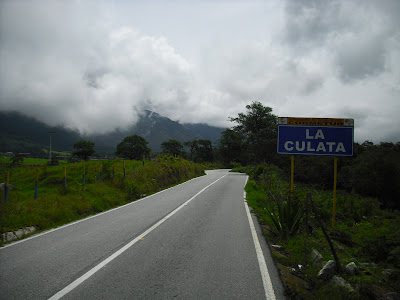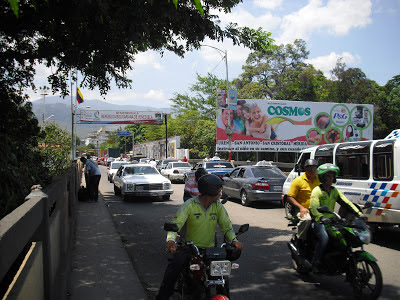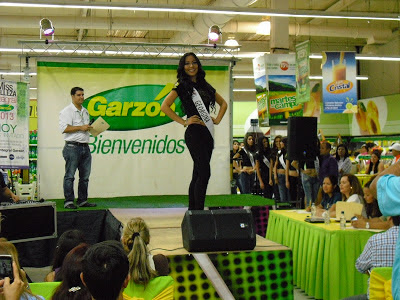Back in our younger, still-living-at-home days, the one thing that we were always encouraged – or forced, if you will – to do was to clean up after ourselves.
We may not always have been the best at it or terribly enthused to do it on many occasions but over time (a long time, some may say) we came to realise that if we made a mess, it was up to us to clean it afterwards. A good rule of thumb for most things in life that, don’t you think?
There are still certain areas of housecleaning that we don’t get too worked up about – a bit of dust in some non-important corner is not a big deal as far as we’re concerned.
 |
| Self-cleaning? |
Something very personal such as your bed doesn’t always have to be made each day either, although we’re getting into the habit of doing that one. Where we have little-to-no patience, though, when it comes to ‘cleanliness-slackness’ is in the kitchen.
Specifically, we’re referring to people who fail to clean up the utensils they’ve used after cooking some food. It is arguably one of the greatest causes of conflict in shared accommodation.
Specifically, we’re referring to people who fail to clean up the utensils they’ve used after cooking some food. It is arguably one of the greatest causes of conflict in shared accommodation.
For us, it’s the height of ignorance for people to leave their dirty dishes – ones that are meant to be for everyone’s use, that is – in the kitchen sink or on the dining table or even hoard them in their room, where no one else can use them, dirty or not.
Obviously, some people were spoilt a little too much by their parents when they were growing up. Of course, do what you like if you’re living on your own, but when you’re lodging with others, common courtesy is that you tidy up after yourself in the areas that are shared. For many, however, that appears to be a difficult thing to understand, let alone undertake.
Now, we’ve come face to face with kitchen pigs all over the world – it’s not something that’s confined to particular regions. But from a Colombian perspective, one potential reason why some people here seem reluctant to clean up their own mess could be to do with the housecleaner.
For many middle- and upper-class Colombians, having a family cleaner or maid (or slave the way we see some treated and, ahem, "paid") is the norm.
In such an environment (in whatever country), any children in these houses, from an early age, get used to somebody cleaning up after them.
Obviously, some people were spoilt a little too much by their parents when they were growing up. Of course, do what you like if you’re living on your own, but when you’re lodging with others, common courtesy is that you tidy up after yourself in the areas that are shared. For many, however, that appears to be a difficult thing to understand, let alone undertake.
 |
| Mammy's not always around to tidy up. |
For many middle- and upper-class Colombians, having a family cleaner or maid (or slave the way we see some treated and, ahem, "paid") is the norm.
In such an environment (in whatever country), any children in these houses, from an early age, get used to somebody cleaning up after them.
What’s more, the employed cleaner generally doesn’t have the power or right to tell these kids to tidy up their own mess in the same way as a parent or sibling does – it’s her (or his, perhaps) job after all, as well as doing generic cleaning, ironing, cooking and whatever else.
So this can leave a mentality in some that "slaving" in the kitchen is somebody else’s business – and usually a chore for a person who is not that important.
So this can leave a mentality in some that "slaving" in the kitchen is somebody else’s business – and usually a chore for a person who is not that important.
Again, that’s fine (in a way) if you have a maid following you about for all your life. For many who think like that, though, this, unfortunately (unfortunate for those who have to live with them that is), tends not to be the case.
Yes, it is more or less true that when we were living at home – there’s a risk of sounding sexist here but this is just how it was at the time – and coming from a farming background, very often cleaning up the dishes after eating was not one of our tasks. The boys did the outside work, the inside toil was the preserve of the girls.
Nonetheless, what we’ll put down to good parenting (and aggressive sisterly "persuasion") when we did fly the nest, we knew at least how to use a bit of washing up liquid and a scrubber to keep things in the kitchen clean.
Indeed, nowadays our policy is to clean up all the things we’ve used in cooking – save for the plate and cutlery that are going to be used in eating – before we sit down to feast. The meal often tastes more satisfying that way, we find.
Trying to inculcate such practices in a number of our various housemates over the years has proven quite difficult if not impossible.
Some day, perhaps, we’ll be able to afford our own place, free from such daily annoyances. We live in hope.
 |
| If a cockroach can find the kitchen sink, anyone can, right? |
Nonetheless, what we’ll put down to good parenting (and aggressive sisterly "persuasion") when we did fly the nest, we knew at least how to use a bit of washing up liquid and a scrubber to keep things in the kitchen clean.
Indeed, nowadays our policy is to clean up all the things we’ve used in cooking – save for the plate and cutlery that are going to be used in eating – before we sit down to feast. The meal often tastes more satisfying that way, we find.
Trying to inculcate such practices in a number of our various housemates over the years has proven quite difficult if not impossible.
Some day, perhaps, we’ll be able to afford our own place, free from such daily annoyances. We live in hope.










